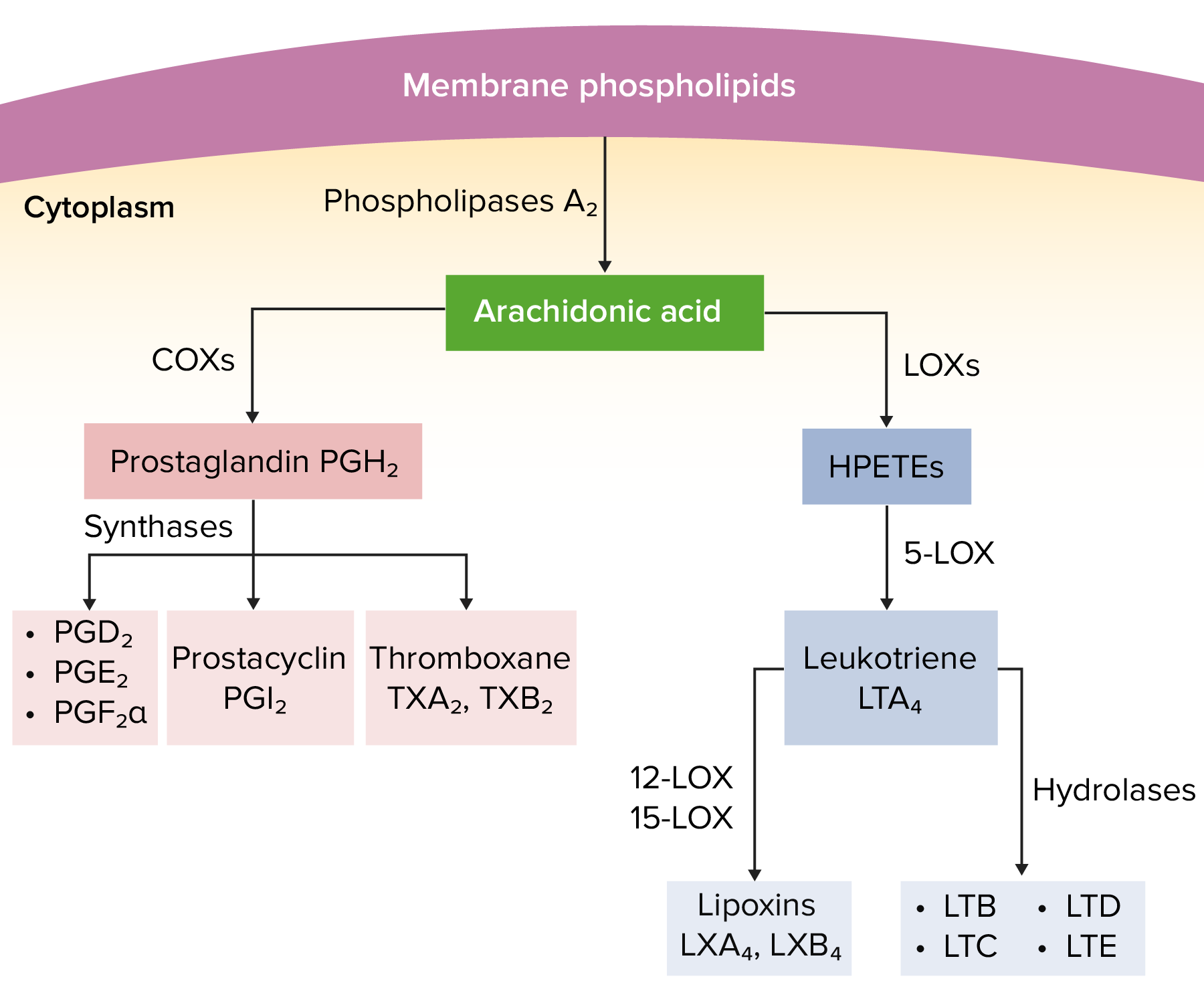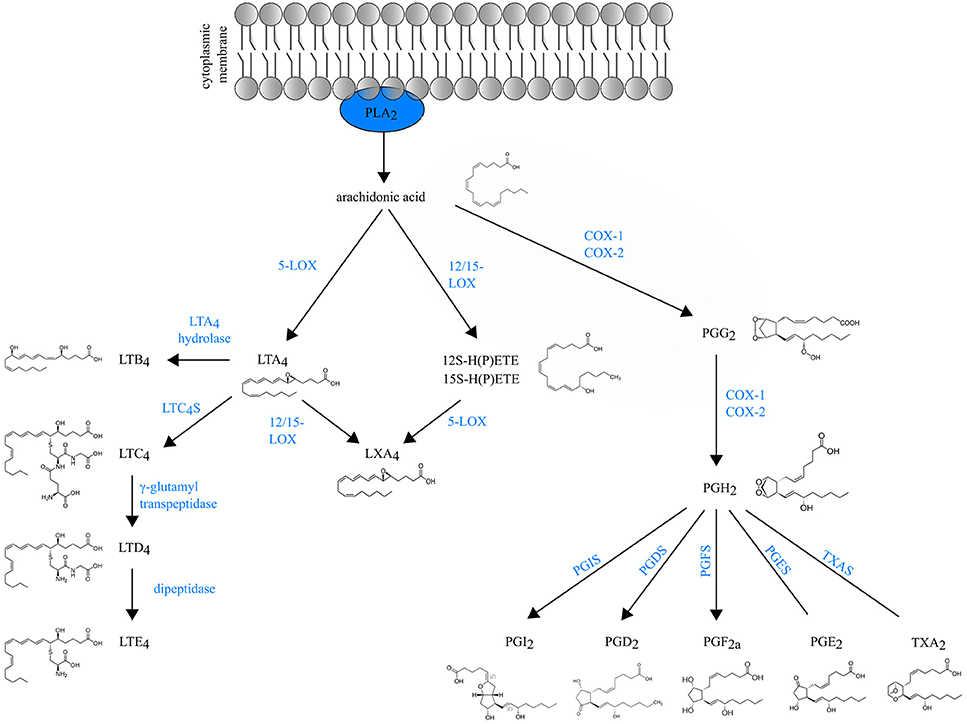Playlist
Show Playlist
Hide Playlist
COX-2 Inhibitors
-
Slides COX2 Inhibitors.pdf
-
Reference List Pharmacology.pdf
-
Download Lecture Overview
00:01 Let's move on to a different class of drugs called the cyclooxygenase 2 inhibitors or COX-2 inhibitors. 00:07 There are several different variation of cyclooxygenase. COX-1, COX-2, COX-3. So these are COX-2 inhibitors. 00:15 These are very effective pain medications. And the nice thing about these pills is that they have reduced GI side effects. 00:23 They also reduce the risk of colon cancer which is kind of a bonus. 00:27 They have a mild increased risk however of myocardial infarction and arterial thrombosis which is why these medications are a little bit more controversial in the sense that there's a lot of people saying "Are they really worth the increased cost?" Now, we have an increased reduction in prostaglandin 1 or prostaglandin I formation and also we are not sure what its effect is on thromboxane A2. 00:53 Now, prostacyclin promotes vasodilation and inhibits platelet aggregation. 00:58 Perhaps this is a mechanism that makes this issue relevant here. Thromboxane A2 inhibits vasodilation and promotes platelet aggregation. 01:07 We believe that perhaps thromboxane A2 activity may be the culprit of how myocardial infarction occurs with the COX-2 inhibitors. 01:17 Suffice to say we are not really sure. 01:19 The prototypical example of this medication is celecoxib, also sold as Celebrex. This was the first member of this new group. 01:31 Now, rofecoxib which was Vioxx and valdecoxib which was Bextra are also both more specific to COX-2. 01:38 These two products were taken off the market by their manufacturers. 01:43 Now the reason why these drugs were taken off the market, in my opinion it was silly, I think that they were just being misused by physicians who didn't know how to use the drugs. 01:53 Suffice it to say, one physician in Australia using 8 times the regular dose of this drug and killing his patients, ended up resulting in taking away medication that were used all over the world. 02:04 They were relatively good drugs but not available anymore. 02:07 And I think the only relevant drug in this class left is Celebrex.
About the Lecture
The lecture COX-2 Inhibitors by Pravin Shukle, MD is from the course Inflammation Pharmacology.
Included Quiz Questions
What is a COX-2 inhibitor?
- Celecoxib
- Aspirin
- Tylenol
- Ibuprofen
- Ketorolac
What is a significant side effect of COX-2 inhibitors?
- Slightly increased risk of myocardial infarction
- Increases risk of osteopenia and bone fracture
- Increases risk of lung fibrosis
- This drug causes early menopause.
- This drug can cause Reye's syndrome in children.
Customer reviews
5,0 of 5 stars
| 5 Stars |
|
5 |
| 4 Stars |
|
0 |
| 3 Stars |
|
0 |
| 2 Stars |
|
0 |
| 1 Star |
|
0 |





